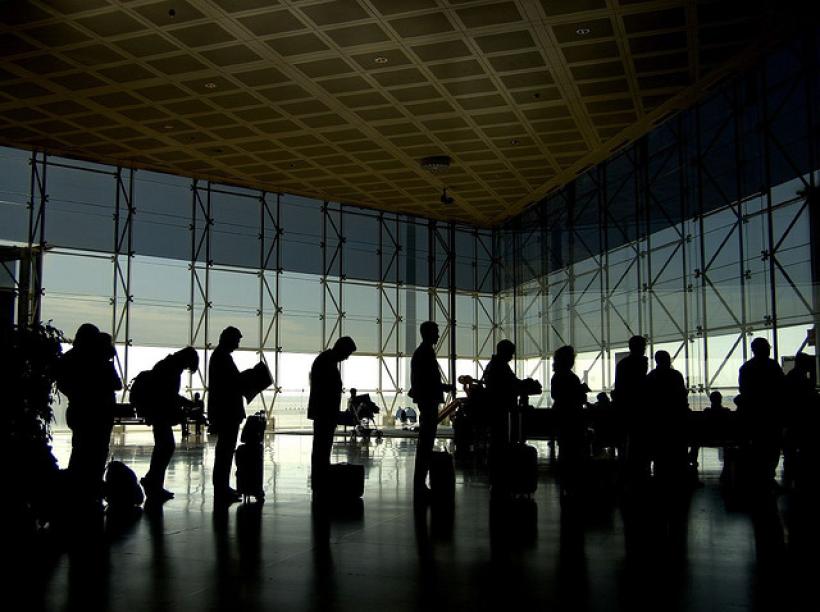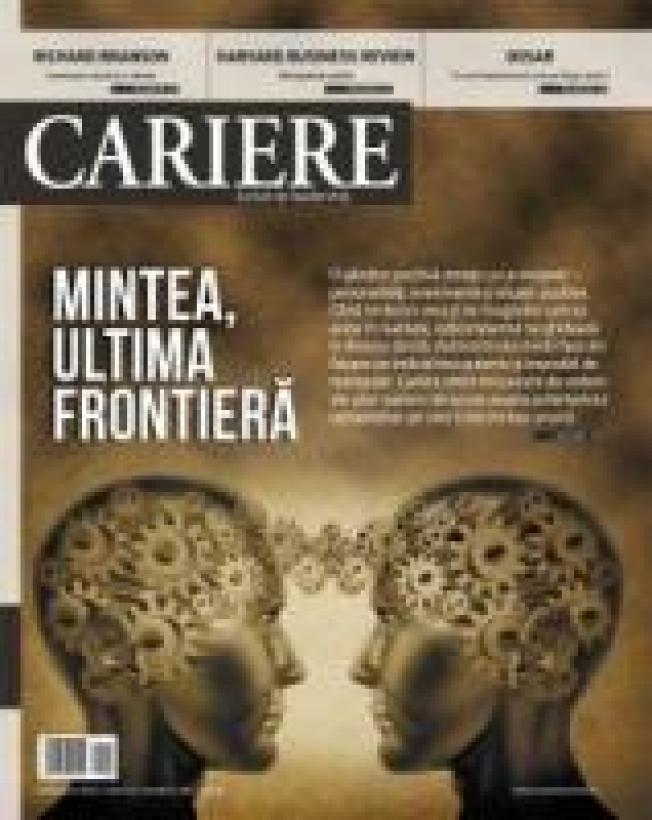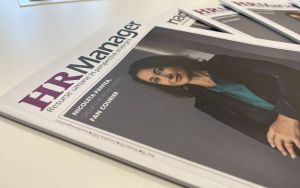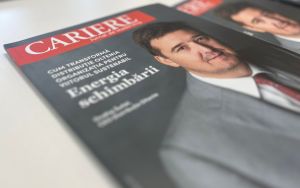No, it was not of the modernist architecture of the old terminal which (beneath its worn surface) conveys the optimism of the early days of flight. Nor was it of the tiny border and security checkpoint, which you would never believe sees off over two million people a year. Heck, it wasn’t even of the taxi drivers who try to convince the unguarded backpacker that the ride to his downtown hotel costs RON 100.
No, the flashback was of the first time I saw how people line up - or, as the British would say, „queue“ in Bucharest.
As a Canadian who has lived in London, my approach to queuing is the product of two influences. First, the uniquely Canadian trait of carrying politeness to the point of docility. Second, the British sense that queuing should, above all, be about quiet perseverance (or, some would say, hopelessness).
These influences are complementary and reinforce a simple set of rules for queuing, which include the following:
• When confronted with a line of people, join the back of it. Do not go to the front, the side, or look for a way around.
• Do not ask any questions of the people waiting in line, or if you must, apologise for doing so.
• Under no circumstances should you start complaining to the people around you. A gentle sigh, a rolling of the eyes, or repeatedly glances at your watch are acceptable.
• If you must talk, it will be forgiven if you have stood in the exact same place for at least ten minutes without the line moving even a millimeter. Then, and only then, you may speak to commiserate with the people sharing your fate.
• And, when you do get to the end of the line, you are permitted to query whether anything unusual happened to cause the delay, but you should not reproach the person responsible for the line. A knowing look or slight shake of the head is, however, acceptable.
Now, admittedly, Canada and the UK have their rule-breakers, and perhaps I am exaggerating some of the rules. But, generally, people do grudgingly and quietly accept their fate when confronted with a long, slow-moving queue. And, an unspoken set of rules keeps people in line.
So, there I stand at Baneasa airport, in the tiniest of departure halls, and I watch as ten people queued up. At first, it was orderly and polite. But, then, the whole hall suddenly became aware that a line was forming. People scrambled up from their chairs, and movement was everywhere.
The line doubled and tripled in size in no time at all. And, then, something unexpected happened - people joined at the side of the line. I watched in amazement (or, should I say, horror) as the line grew one, two, and then three branches. Some halfhearted attempts were made to tell the side-joiners to go to the back of the line, but soon enough, the line was no more. It was simply a blob of people.
Not knowing how to react, I kept my seat and watched the „line“. Amazingly, it was working fine at first, and the two airport employees slowly scanned boarding pass of whoever happened to step forward first.
But, then, one bus carrying people to the plane was full and the second was late. The line stopped moving. A few minutes later, people in line become conscious that the line was not only in front and behind of them, but all around them. Some jostled for position. A few exchanged harsh looks and words.
Those closest to the front of the line then began to assertively ask questions of the hapless airport staff, who pointed and shrugged in the direction of the buses. And, as they shrugged, you could see the disapproving ripple move through the rows of people, with much pointing, talking, and shaking of heads. It was neither quiet nor apparently polite.
Half an hour later, with the second bus full and the departure hall empty, I finally presented my ticket and passport to the staff. One looked shaken; the other angry. I quickly hurried onto the bus, not quite sure what to make of it all.
Since then, I have witnessed similar scenes in Romania - at government offices, at banks, at post offices. A line always seems an opportunity for a scandal. The contrast with Canada and the United Kingdom was so marked that I resolved to get to the bottom of it, probing my Romanian friends for an explanation. But, after hearing a wide range of theories - the legacy of communism; the frustration with widespread incompetence; the reluctance of some Romanians to acquiesce to group censure - I have come to accept that lines in Romania simply are different from those in Canada and the UK.
After two years in Romania, my one complete and absolute adherence to the rules of „queuing“ is cracking. I find the Canadians and the Brits a bit too docile in line, and I am not nearly as patient these days. Too often in Romania, though, the people in charge of lines - the gods of the queues - are too hands-off, too slow to enforce the rules and to bring order to a blob of people. And, within each blob, people seem to quickly forget a simple, essential maxim: „When in line, look to your left, look to your right, look forward, look back. We are all going the same place, and we’re in it together.“
 Kevin-Paul Deveau is a Senior Associate in the International Finance Group of Clifford Chance and is currently on secondment to Bucharest office. Kevin-Paul is an English solicitor, and his practice encompasses a wide range of transactions, including acquisition finance, project finance, general corporate lending, structured finance and restructuring, with a particular emphasis on central and eastern Europe. Prior to joining Clifford Chance, Kevin-Paul worked in the business and energy groups of a leading Canadian law firm and on secondment at TransAlta Corporation, a energy company based in Calgary, Alberta, Canada. Kevin-Paul obtained a BA (Hons) and a combined JD/MA from the University of Toronto.
Kevin-Paul Deveau is a Senior Associate in the International Finance Group of Clifford Chance and is currently on secondment to Bucharest office. Kevin-Paul is an English solicitor, and his practice encompasses a wide range of transactions, including acquisition finance, project finance, general corporate lending, structured finance and restructuring, with a particular emphasis on central and eastern Europe. Prior to joining Clifford Chance, Kevin-Paul worked in the business and energy groups of a leading Canadian law firm and on secondment at TransAlta Corporation, a energy company based in Calgary, Alberta, Canada. Kevin-Paul obtained a BA (Hons) and a combined JD/MA from the University of Toronto.









